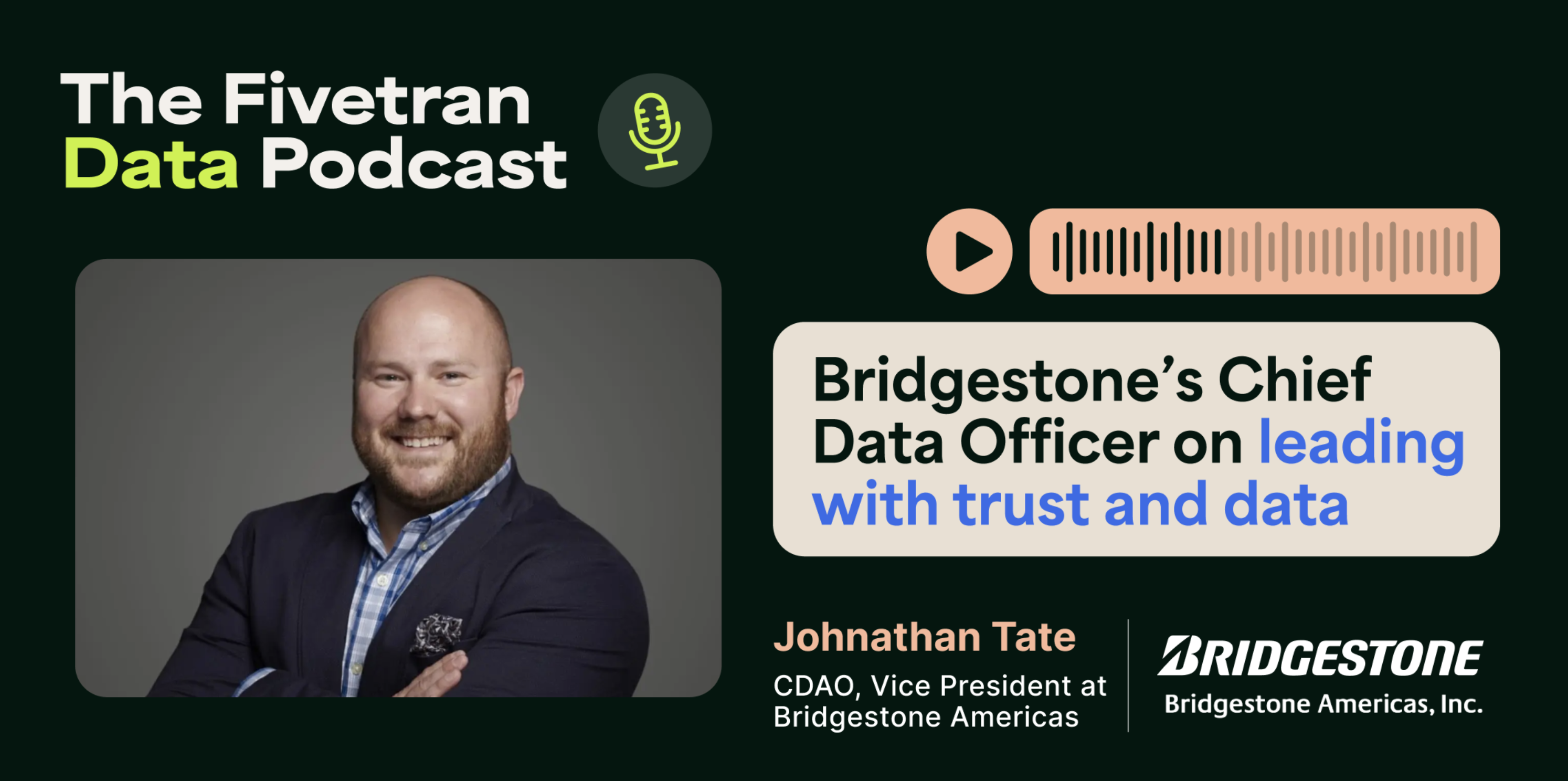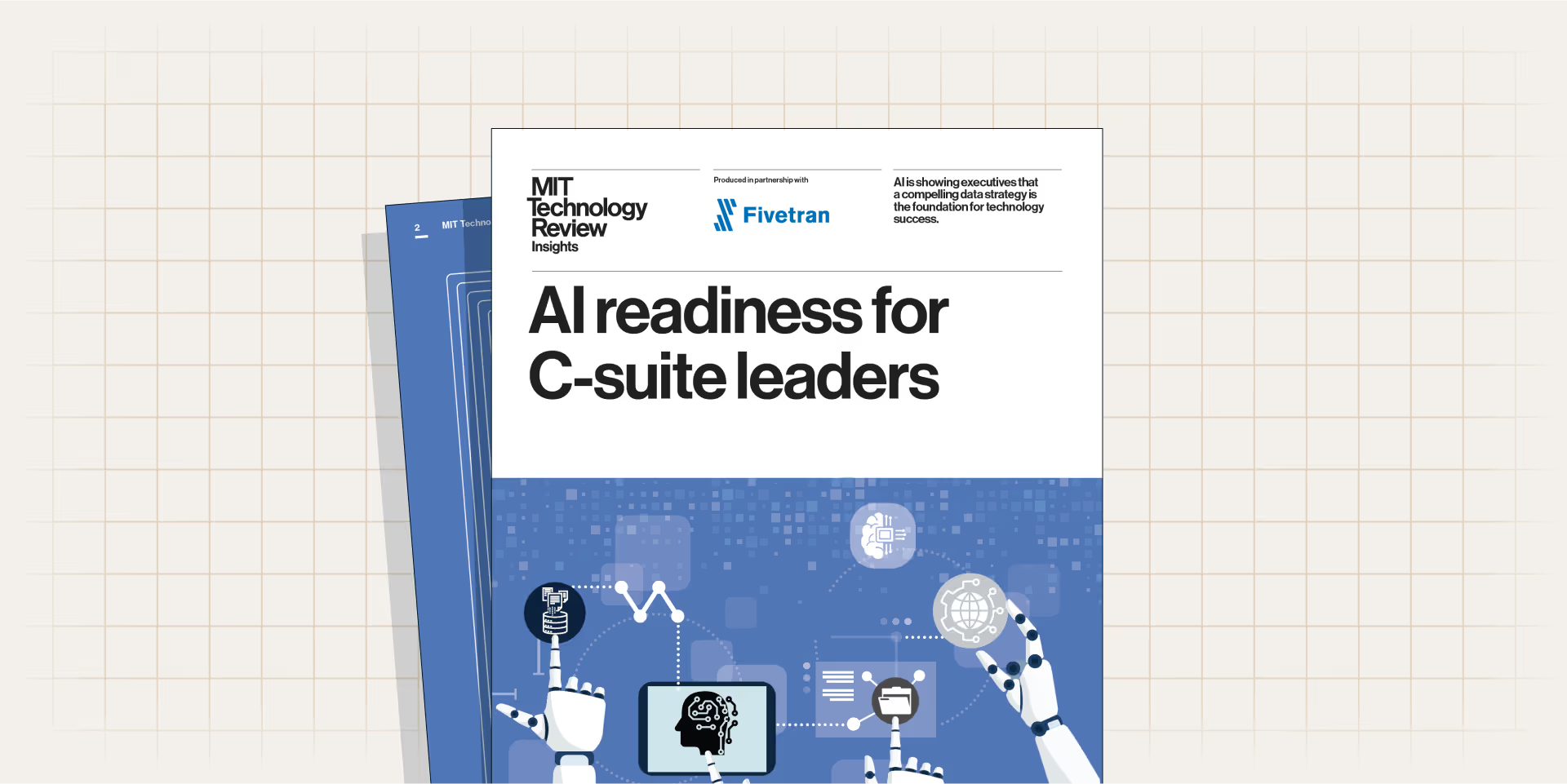The Chief Data Officer role may be new to the C-suite, but it’s already earned a reputation as one of the toughest jobs in business. With an average tenure of just a few years, CDOs have a narrow window to prove their value — and the clock starts ticking on day 1. Those first 90 days can make or break a career.
Few people understand this better than Johnathan Tate, Chief Data Officer at Bridgestone Americas. Having also held leadership roles at Walmart, Nike, and Deloitte, Tate has seen firsthand what it takes to succeed. In a recent episode of the Fivetran Data Podcast, he shared how CDOs can build trust quickly and turn early wins into long-term influence.
Start with trust, not dashboards
One of the biggest takeaways from my conversation with Johnathan was this: the first 90 days aren’t about blueprints — they’re about buy-in.
He emphasized that when you’re stepping into a CDO role, especially at an enterprise like Bridgestone, credibility isn’t earned with a 5-year roadmap or a shiny new dashboard. It’s earned by listening to your stakeholders, understanding their challenges, and delivering something tangible — fast.
At a previous company, his team analyzed 3 years of claims data and used AI to auto-score claim thresholds. That single project helped the business zero in on high-value cases and stop leaving money on the table. It wasn’t a massive platform overhaul; it was a strategic, well-timed win that demonstrated what the data team could do.
“If you can bring back some quick wins that then build trust with that leader and with your peers,” Tate told me, “then you'll get the support to build that longer roadmap and to invest in that longer strategy.”
That mindset of value first, roadmap second is a powerful one.
Shift from technologist to business strategist
Early in his career, Tate approached data strategy like many of us do — big builds, long timelines, lots of infrastructure. But over time, he saw that executives weren’t responding to theoretical ROI. They wanted results.
So he changed his playbook.
Rather than focusing on what to build, he started asking why to build it. That shift from technical builder to business owner transformed the way he engaged with the organization. He started delivering outcomes tied directly to core KPIs: operational efficiency, cost savings, and customer experience.
That’s a lesson I see more data leaders embracing because, as Tate stresses, the future belongs to teams that can articulate why data matters — not just build dashboards.
Leading the evolution of BI
As we dug into the changing BI landscape, Tate had a clear point of view: dashboards aren’t going away, but their role is evolving.
While traditional BI still matters, especially for executive decision-making, AI agents are already handling much of the day-to-day reporting. The skillset BI teams need, he says, is shifting toward building narrative-rich, story-driven dashboards that contextualize data and drive action.
“BI reporting is evolving to be more of an expertise around creating large-scale executive dashboards, a really good story-driven dashboard,” Tate said. “And then AI agents are going to be able to handle the day-to-day simplistic reporting that you typically would have a BI developer do.”
And that evolution isn’t just about tooling. CDOs have to guide their organizations through it, ensuring that insights remain rooted in governed, trustworthy data even as AI takes on more of the heavy lifting.
Advice for CDOs — and those who want to be one
Whether you’re a tenured CDO or just starting to map your path to the role, Tate’s advice is consistent:
- Lead with empathy
- Ask the “so what” behind every project
- Stay hands-on with the business
- Always tie your work to measurable value
And most importantly: Don’t wait for the perfect strategy to start delivering. Make your move early. Think of the first 90 days as your down payment on long-term influence — credibility compounds fast when you show up with results.
[CTA_MODULE]













